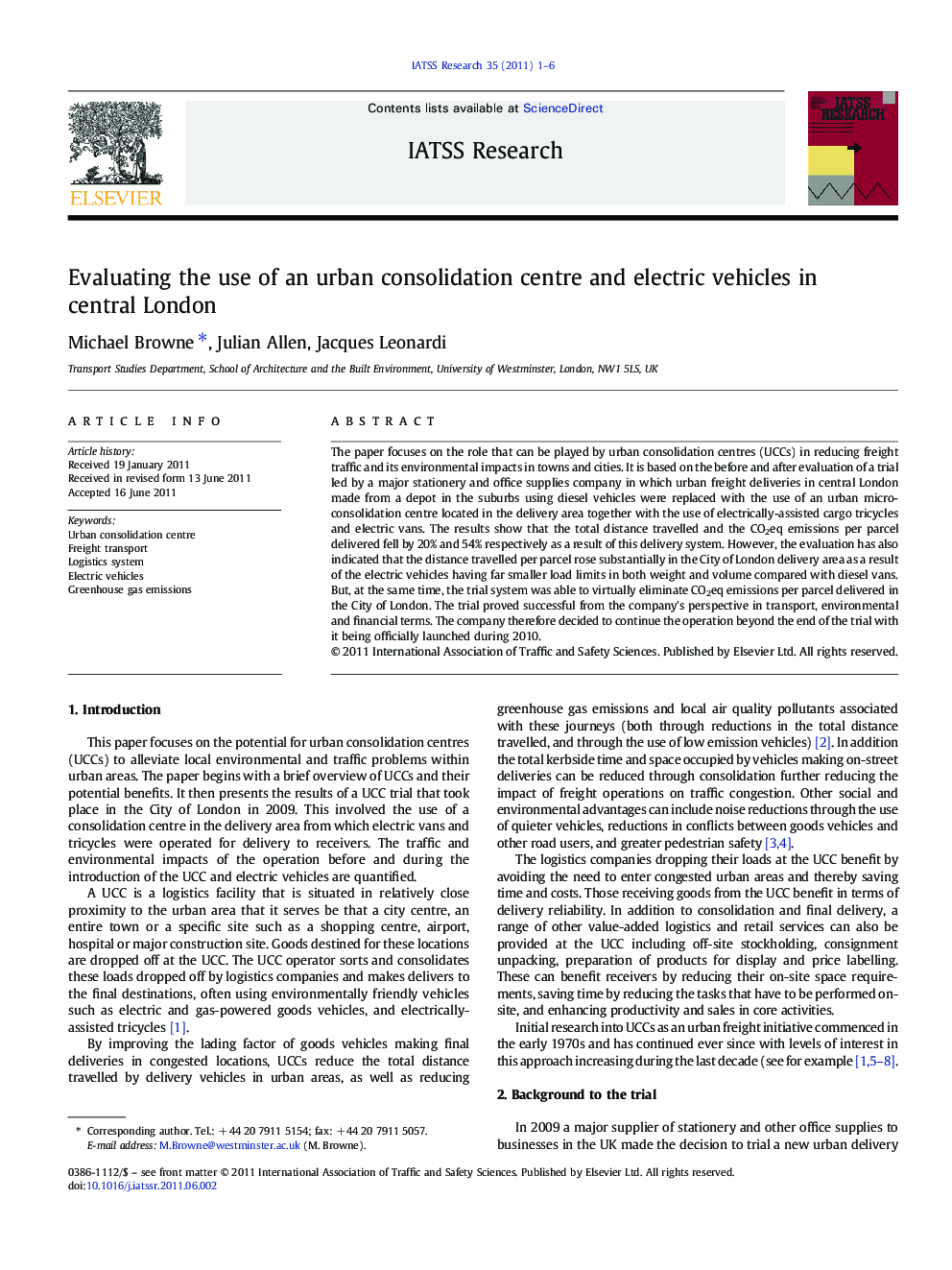| Article ID | Journal | Published Year | Pages | File Type |
|---|---|---|---|---|
| 1104696 | IATSS Research | 2011 | 6 Pages |
The paper focuses on the role that can be played by urban consolidation centres (UCCs) in reducing freight traffic and its environmental impacts in towns and cities. It is based on the before and after evaluation of a trial led by a major stationery and office supplies company in which urban freight deliveries in central London made from a depot in the suburbs using diesel vehicles were replaced with the use of an urban micro-consolidation centre located in the delivery area together with the use of electrically-assisted cargo tricycles and electric vans. The results show that the total distance travelled and the CO2eq emissions per parcel delivered fell by 20% and 54% respectively as a result of this delivery system. However, the evaluation has also indicated that the distance travelled per parcel rose substantially in the City of London delivery area as a result of the electric vehicles having far smaller load limits in both weight and volume compared with diesel vans. But, at the same time, the trial system was able to virtually eliminate CO2eq emissions per parcel delivered in the City of London. The trial proved successful from the company's perspective in transport, environmental and financial terms. The company therefore decided to continue the operation beyond the end of the trial with it being officially launched during 2010.
► This paper considers how urban consolidation centres can reduce freight traffic and its impacts. ► It is based on the evaluation of a trial by a major office supplies company in central London. ► The new delivery system led to reductions in total distance and CO2eq emissions per parcel delivered of 20% and 54% respectively. ► The trial was successful in transport, environmental and financial terms.
